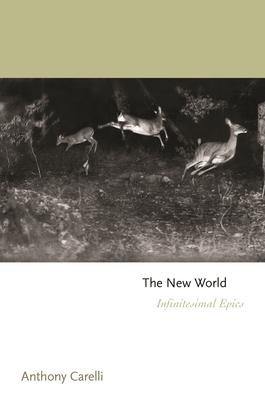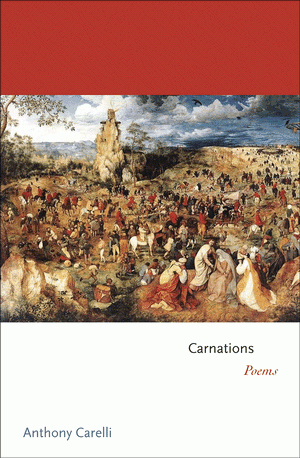In Anthony Carelli's remarkable debut, Carnations, the poems attempt to reanimate dead metaphors as blossoms: wild and lovely but also fleeting, mortal, and averse to the touch. Here, the poems are carnations, not only flowers, but also body-making words. Nodding to influences as varied as George Herbert, Francis Ponge, Fernando Pessoa, and D. H. Lawrence, Carelli asserts that the poet's materials—words, objects, phenomena—are sacred, wilting in the moment, yet perennially renewed. Often taking titles from a biblical vocabulary, Carnations reminds us that unremarkable places and events—a game of Frisbee in a winter park, workers stacking panes in a glass factory, or the daily opening of a café—can, in a blink, be new. A short walk home is briefly transformed into a cathedral, and the work-worn body becomes a dancer, a prophet, a muse.

